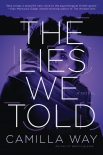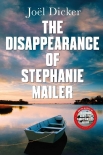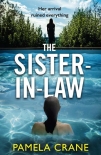The Lies We Told, Camilla Way [ereader android TXT] 📗

- Author: Camilla Way
Book online «The Lies We Told, Camilla Way [ereader android TXT] 📗». Author Camilla Way
My dad collects clocks, and there are hundreds of them in our house all ticking at once, as if the air is shivering, chattering its teeth. I listen, and sure enough, after a few moments, there it is: the clanging jangle of dings and dongs as they all strike the hour at once. I count to seven. Teatime, then. My mother’s never late. The thought of her downstairs sitting at the kitchen table waiting to begin grace jolts me into action. “Coming!” I shout. “I’m coming!”
Downstairs, Dad sits at the kitchen table reading aloud from a newspaper article about geological engineering. Mum moves around the kitchen not listening to him, transferring plates of food from the work top to the table in front of us. I watch her, trying to gauge her mood. Finally she puts the last plate down and without looking at me sits and begins to pray.
Sometimes Mum reminds me of the lake where we used to go camping back home in Wales. I’d wade through its water on hot summer days, suddenly chancing upon inexplicable pockets of ice-cold, before blundering farther into a shallower, warmer patch. I’d stay there for as long as possible, wallowing in the sunny warmth, until the touch of slimy seaweed or the thought of eels or dead fish slipping past my ankles would make me panic and press on. Being with Mum is like that sometimes: you never know where the cold pockets are, or what’s there waiting for you in the warmer spells.
“Heather!” My mother stops midprayer, and I realize too late that I’d been absentmindedly picking at the tomato salad.
“Sorry,” I say, and feel myself redden.
Sometimes I do this thing to help me sleep, pretend that everything’s as it was before, that I am six again and Lydia three, and we’re all still okay. I imagine Lydia’s hand in mine as we run together in the garden of our old house and hear her laughter as I fall asleep.
As if to rescue me from my thoughts, the face of the girl I’d met that afternoon pops into my head, and I feel a sort of light lifting in my heart. Edie.
—
Fremton’s a horrible town. I shouldn’t say that, but it’s true. We moved here from Wales when I was ten—a fresh start, Mum said. After what happened, people in our village I’d known all my life suddenly looked differently at me when I passed them in the street, or else swooped down on my parents like big black greedy crows, cawing sympathy, pecking for answers.
Eventually Mum and Dad stopped doing the things they used to do. Slowly, bit by bit, Mum pulled out of choir practice, her book group, organizing school fetes. Eventually, except for church on Sundays, she barely left the house. Dad carried on teaching at the boys’ school across the valley, but at home he found refuge in his study, mending his clocks and reading his books. I guess from the outside it might have looked as if we were shutting out the world to find comfort in each other, but it wasn’t like that at all. My mum and dad cleaved like a stricken tree, me like a lost squirrel hopping between the two halves. Dad had never looked at me in the same way after it happened and Mum didn’t either, but it was different with her. With Mum I knew in my heart that she wished it was Lydia who had come home safe and sound that day, not me.
So when they told me one evening after supper that Dad had been offered a new job in an English town a hundred sixty miles away, that it meant a promotion and a bigger house, I knew the real reason for the move: we would be going somewhere nobody knew about us, about what had happened, and what it meant. And a month later here we were. But nothing really changed, not really. My mum found a new church to go to, but apart from that she still hardly ever left the house. These days her focus is on me. My schoolwork, my weight, my piano practice, my future. She’s trying to make me better, I think.
Now that the exams are over, I have seven empty weeks to fill, so when I’m not helping Mum around the house or doing my volunteering work, there’s nothing much else to do but walk. Fremton’s right next to the motorway, so wherever you are you can hear it, the never-ending rush of traffic on its way to somewhere else. The whole town feels as if it’s been forgotten somehow, as if everyone upped sticks and left years ago. There’s a canal that runs through the middle, but no one goes down there very much and the shops in the square are mostly empty since the superstore opened on the Wrexham Road. There’s a big statue of a miner in the center of the square, carrying a sack of coals on his back, but someone’s spray-painted a big orange willy on his head. Then there’s just streets and streets of council houses till you get to the Pembroke Estate, three high towers pushed right up against the motorway, as if they’re standing guard, warning outsiders away.
Wherever I go I look out for Edie, scanning the faces I pass, hoping that one day one of them will be hers. I think about her smile and her brown eyes and how nice she’d been to me and I wonder what she’s doing and where she lives, whether she’s bored or by herself like me. And then, out of the blue, I see her again. I’m walking home through the square when I spy her sitting on a bench by the statue, smoking a cigarette. I stop in a shop doorway to watch her. She’s wearing a short denim skirt and





Comments (0)